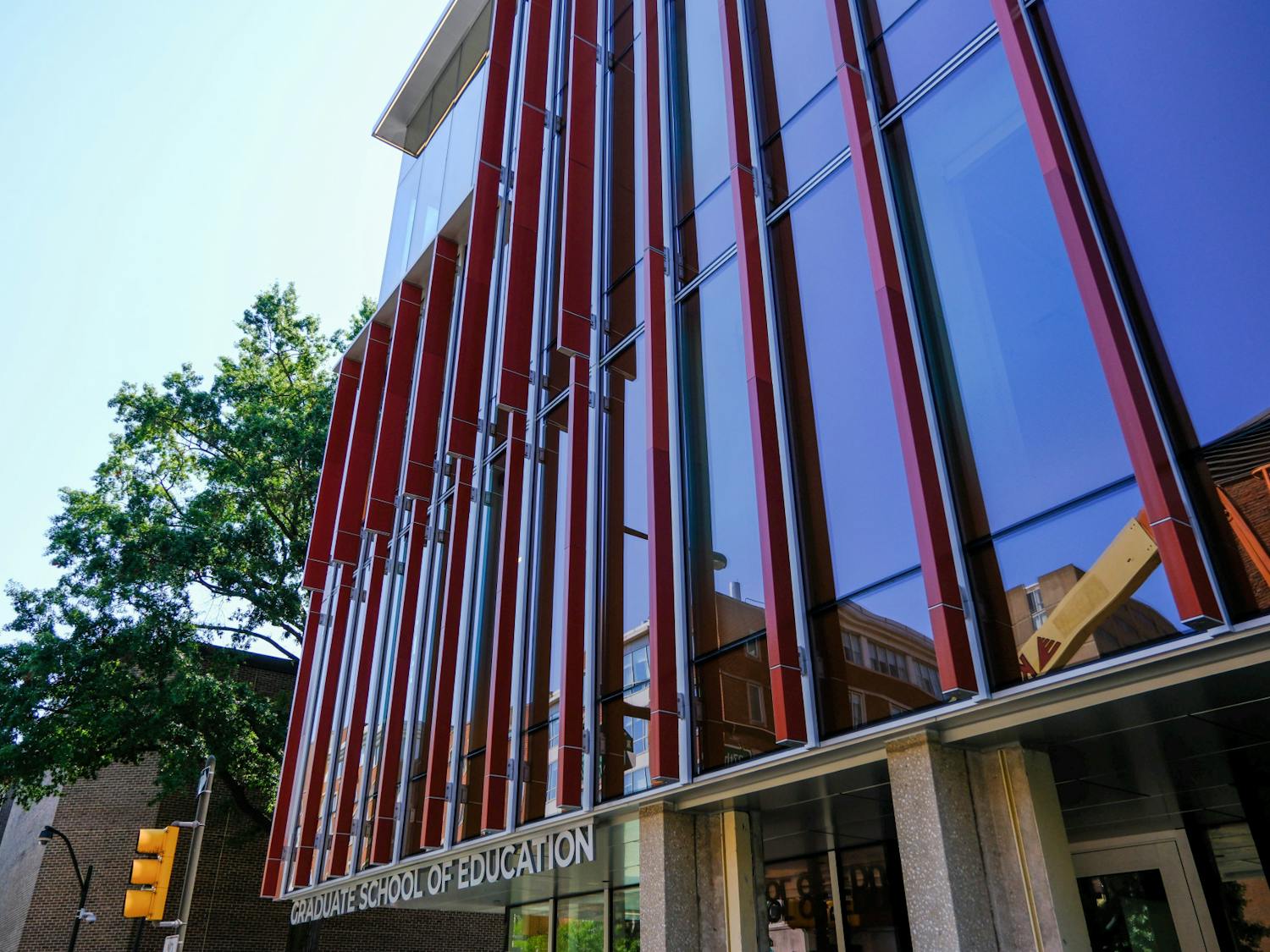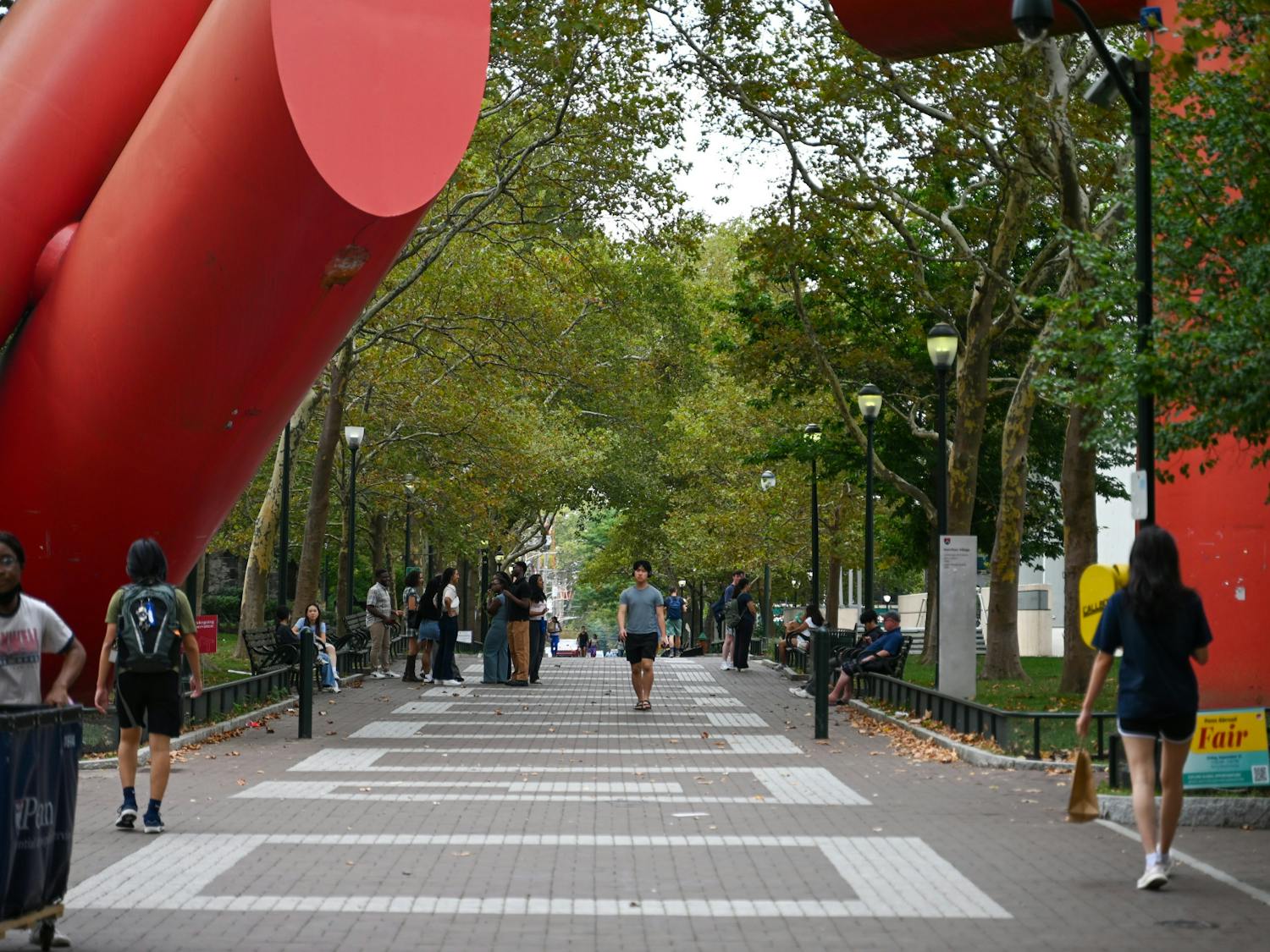On a Saturday, the last goal in the average student's mind is to be first in line at Gimbel Gymnasium. But two weeks ago, while some ate brunch or recovered from hangovers or enjoyed a day to sleep in, Sumit Mehta was one of the first people to enter Gimbel's weight room when it opened at noon. "Sumit was first up and out the door at 12:00 when everyone else was waking up," his roommate Pronab Saha said last week. Throughout his 19 years, Mehta had been first in most things. He is an award-winning horse rider, an outstanding student and all-around daredevil. And Mehta, a Wharton sophomore from Bombay, India, had been weight training without incident for over a year. But on Saturday, September 14, something went terribly wrong. About twenty minutes into his workout, Mehta took a break from a set of exercises designed to work his upper back muscles. But shortly after stepping away from the lat pulldown machine, he began to feel faint and dizzy. According to eyewitnesses, his eyes fluttered and he began to reel as he sensed he was losing his balance. He may have tried to say something, but no sound came out as he tried to form words. Knowing he was about to fall, Mehta lunged for a nearby exercise mattress to break his fall. He tumbled toward it, narrowly missing steel exercise equipment. As Mehta's body crumbled into the mat, the muffled thud was heard around the world. His uncle and family friends came from New York that evening. His uncle and aunt arrived from Belgium the next day. His parents arrived from Bombay, India, on Monday, and his younger brother in Switzerland and his grandparents and additional aunts and uncles arrived from India early in the week. Since the family arrived, they and Mehta's roommates and numerous friends at the University have kept constant vigil over their son, grandson, nephew, brother and friend. They have also started to question what could have been done to prevent the severe brain damage Mehta received within the hour after he collapsed, and what caused him to pass out in the first place. · Immediately following his collapse, eyewitnesses said Mehta was shaking violently and hyperventilating. The 15 to 20 people in the weight room began to gather around Mehta, and as the seriousness of his condition became apparent, some ran for help. In the span of two minutes, Mehta's shaking began to subside and his labored breathing tapered off. Observers tried unsuccessfully to find a pulse. Standing on the opposite side of the weight room, College senior Bill Thompson watched as Mehta dropped to the floor. Too far away to see Mehta's face, the collapse caught his attention but didn't immediately strike him as odd. Perhaps Mehta was putting on an exaggerated show of exhaustion for a nearby friend, or dropping to the floor to adjust weights on one of the machines. Then people started yelling for assistance. Thompson and some fellow members of the swim team ran down to the first floor recreation office to get help from gym workers. When they returned, some observers were making attempts to administer mouth-to-mouth resuscitation. Thompson, who is certified in CPR, realized they were unfamiliar with the procedure and jumped in to help. Gym officials ran downstairs to call for paramedics. University Police took the call at 12:35 p.m. and contacted Philadelphia Fire Rescue. Upstairs, three men pushed their way through the growing crowd, identifying themselves as doctors. The three -- local opthamologists -- had been playing a game of basketball on the nearby courts when someone ran in searching for help. The doctors and Thompson continued the resuscitation efforts. At 12:39, University police officers arrived in front of Gimbel. Police proceeded to clear people from the room, and the rescue unit arrived at 12:41. While Thompson and one of the doctors continued to deliver CPR, paramedics hooked up heart monitors and an intravenous line to deliver adrenaline. Emergency medical technicians prepared the defibrillator, a machine which delivers electric shocks in an attempt to jump-start the victim's heart. Thompson repeatedly asked, "Should I keep going? Should I keep going?" The paramedics assured him he was doing fine. But the only response paramedics detected were faint ventricular fibrillations, fluttering attempts by heart muscles to reestablish a uniform heartbeat. Thompson recalled wondering how long a person could go completely without oxygen before starting to suffer brain damage, and he knew it was only a few minutes. As Mehta went "asystole" and the faint signs of electrical activity in the heart muscles fainted away, paramedics took over and delivered atropine -- a drug which increases heart rate -- in another attempt to revive the 19-year-old. Their efforts continued to be unsuccessful. Mehta was lifted onto the stretcher and transported downstairs, along the chlorine-scented corridor above the gym's swimming pool, out the front doors and into the back of the waiting ambulance while another paramedic continued to work on his chest. According to reports, the vehicle departed the scene with sirens blaring at 1:05 p.m. -- 24 minutes after arriving and more than a half hour after Mehta collapsed. At 1:19 p.m. -- 14 minutes after driving away from the gymnasium -- Mehta was admitted to HUP's emergency room. Then doctors and nurses made a breakthrough. Paramedics using the emergency room defibrillator managed to restore Mehta's heartbeat and pulse. Yet as doctors worked to stabilize Mehta with life support systems and respirators, the student remained comatose. At 3 p.m. that day, he was transferred to HUP's Coronary Care Unit, and has shown no significant signs of improvement since. · Sangeeta Mehta, Sumit's aunt from Belgium and the family member most fluent in English, said this weekend that the doctors and nurses at HUP who delivered emergency treatment and critical care were excellent. "Those are the people who revived a dead person after 50 minutes," she said. "They did their level best -- no complaints." But even now, family members and friends of Mehta said they still have concerns about the emergency treatment he received immediately following his collapse. Particularly disturbing to them is the 14-minute gap between when the ambulance left Gimbel Gym at 38th and Walnut with sirens blaring and when Mehta arrived at HUP's emergency room at 34th and Spruce. "You can walk -- it takes five minutes," his roommate Pronab Saha said last week. Sitting on the half dozen blue couches in the hospital's beige-and-blue waiting area outside the Coronary Care Unit, the family receives occasional calls from friends, family and University administrators on the lounge's two pay phones. Sangeeta Mehta, the aunt, acts as spokesperson, while family members occasionally add information or debate a point in a mix of English and Hindi. "Those first 45 minutes that he did not get that blood supply to the brain -- maybe that time could have been shortened or saved and we would have gotten a better response," she said Friday. "That's what the family thinks." HUP Medical Director Sheldon Jacobsen said this weekend that while he had no direct knowledge of the incident, the family's concerns "are not unreasonable." "But I'm sure there were heroic attempts [to resuscitate him]," he added. Jacobsen said the goal of the emergency medical crew is to stabilize a patient on the scene if at all possible, and added that ambulances carry "almost the same medical [equipment] that we would have in the emergency room," making immediate efforts to reach the hospital unnecessary and, at worst, risky. Since the equipment is basically the same, he also said that the difference in Mehta's response to defibrillation is more a matter of chance. "As to why it took 14 minutes to go from one place to the other, I certainly can't answer that," Jacobsen said, saying it was a question for Fire Rescue. The Fire Rescue commissioner's office referred calls to officials in the EMT division, who were not available for comment this weekend. · The family has scheduled a meeting today with doctors to "make further decisions." "We cannot say anything yet," Sudhir Mehta, Sumit's father, said Friday. Over the last two weeks, Mehta has undergone tests to detect a brain hemorrhage or heart defect or some other reason for his collapse. But the only reason doctors have offered the family is "cardiac arrhythmia," or uneven heartbeat. What, if anything, caused the uneven heartbeat has not been determined. Other tests were administered to check for brain damage from lack of oxygen between the time he collapsed and the time he was resuscitated in the emergency room. According to the family, tests indicated "severe brain damage" in the cerebral cortex, an area of the upper brain that controls higher-level thinking. Mehta was scheduled for two minor surgeries Friday that were pushed back to today because of operating room backups, and then cancelled over the weekend. One operation was to be a tracheotomy to help Mehta breathe with a direct oxygen supply to the lungs and to replace breathing apparatus put in place when Mehta first collapsed. The second was meant to switch Mehta's feeding to a direct stomach tube. Doctors contacted this week said these operations might have suggested a victim was a candidate for long-term care. ' "You don't expect things like this to happen at this age," Mehta's roommate Pronab Saha said last week. "You expect everyone to be immortal." Saha has also been grasping for a reason to explain Mehta's collapse. "He's been lifting since freshman year, so that shouldn't have been a problem," Saha said. "He doesn't smoke, he doesn't do drugs, he's a vegetarian, he's fit."
The Daily Pennsylvanian is an independent, student-run newspaper. Please consider making a donation to support the coverage that shapes the University. Your generosity ensures a future of strong journalism at Penn.
Donate







